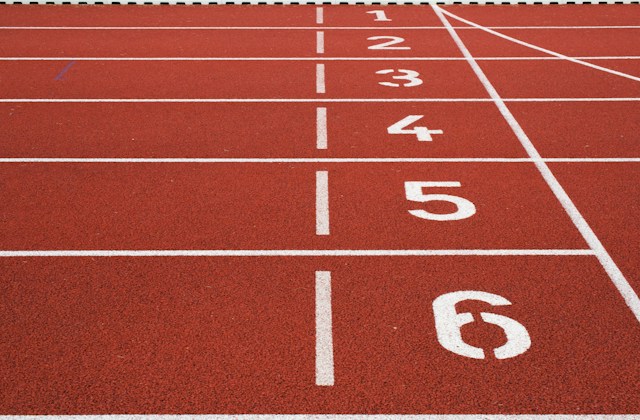As a curious reader, you’ve likely come across the stories of the elite athletes who have transitioned into retirement, stepping away from the limelight of professional sports. You might have wondered, just as they do, ‘What comes next?’ Athletes, like anyone else, face confusion and uncertainty when leaving a long-standing career. However, their transition can be unique, more bittersweet, as they bid farewell to an industry that demands peak physical health and youth. This article will delve into the mental and emotional preparation athletes undertake when transitioning from their athletic life into retirement.
The Mental Shift
The transition from being an active athlete to retirement often brings with it a significant mental shift. Athletes have spent a majority of their lives focused on training, winning, and pushing their bodies to the limit. Upon retirement, the mental focus shifts dramatically. It’s not just the change of daily routine but the redefinition of personal identity that can be challenging.
Dans le meme genre : What role do sports play in promoting scientific literacy and STEM education?
A study review from PubMed suggests that athletes often struggle with self-identity during this transition period. An athlete’s self-concept and personal identity are closely tied to their sports career. When they retire, they may feel a loss of identity and purpose. Therefore, mental preparation for retirement involves developing a new identity that extends beyond their sports career.
Elite athletes often work with psychologists, therapists, and coaches who employ cognitive-behavioral techniques to help them process this identity shift. These professionals provide support by helping athletes envision a future beyond the sports arena, embedding a new sense of purpose in their post-career life.
A voir aussi : How can sports organizations use data analytics to enhance fan engagement and loyalty?
The Emotional Preparation
Retirement from sports isn’t just a career change. It’s a life-altering event that can stir a whirlwind of emotions. Many athletes experience feelings of grief, loss, and sadness. They may mourn the loss of their career, the thrill of competition, or the camaraderie with teammates.
Experts from Crossref highlight the importance of emotional health support during this transition phase. Emotional preparation involves recognizing and validating these feelings, then developing strategies to cope with them. Athletes might engage in mindfulness and acceptance techniques to manage emotional upheaval. Just as they trained their bodies for sports, they must now train their minds for emotional resilience in their new chapter.
The Role of Google Scholar in Transition Support
You might wonder how Google Scholar fits into this picture. In fact, Google Scholar can be a vital tool for athletes preparing for retirement. This search engine for scholarly literature provides access to a plethora of studies, journals, and articles related to athlete retirement, mental health, and career transition.
Athletes can use Google Scholar to educate themselves about the experiences of others who have gone through the same transition. Knowledge is power, and understanding the psychological impacts of retirement can better equip athletes to manage their own transition. They may also find useful strategies, insights, and advice from professionals in the field, which can enhance their own preparation process.
Bridging the Gap: Life After Sports
The process of retirement often begs the question, ‘What do I do now?’ For athletes, the answer lies in identifying new passions, goals, and career pathways. Some athletes might return to school, leveraging scholarships to pursue higher education. Others might transition into related fields such as coaching, sports commentary, or athletic training.
Many sports organizations now offer athlete transition programs. These programs provide resources, career guidance, and support to help athletes navigate life after sports. They aim to bridge the gap between the athlete’s former athletic life and their future life, ensuring a smoother transition.
The Importance of a Support Network
A strong support network is a cornerstone of an athlete’s transition to retirement. This network often includes family, friends, mentors, and mental health professionals. They provide emotional support, practical advice, and a sense of community during this pivotal period.
Support networks can also help athletes maintain a positive mindset and stay motivated as they explore their new pursuits. They act as a safety net, catching the athletes when they stumble and propelling them forward in their post-sports journey.
Retirement from professional sports is a journey, an adventure that requires a lot of mental and emotional preparation. It might seem daunting, but remember that athletes aren’t alone. They are surrounded by support networks, powered by their resilient spirit, and armed with resources to help them navigate this new chapter. So, while the lights may dim on the sports field, they shine brightly on the path ahead, illuminating new possibilities and opportunities.
Utilizing Online Resources: PubMed, CrossRef, and Google Scholar
In the digital age, athletes have access to a wealth of knowledge that can aid their mental and emotional transition into retirement. Online resources, such as PubMed, CrossRef, and Google Scholar, offer valuable insights that can guide athletes through their career shift.
PubMed is a free resource that offers over 30 million citations for biomedical literature. Athletes can use PubMed to conduct a systematic review of studies related to mental health symptoms and responses to career transitions. By leveraging PubMed, athletes can equip themselves with a scientific understanding of the challenges they may face during retirement.
Similarly, CrossRef provides a vast database of professional and academic articles. Athletes can use CrossRef to explore articles and studies focused on sport psychology and the emotional aspects of transitioning from sport professionally. The information they gain can help them prepare for and navigate the emotional shift tied to retirement.
Lastly, Google Scholar offers a wide variety of scholarly articles and journals that athletes can consult. These resources can help athletes understand the personal experiences of others who have retired from sports, the potential mental and emotional health symptoms they may encounter, and strategies for managing these changes.
Conclusion: Embracing the Next Chapter
Retirement from sports signifies the end of one chapter and the beginning of another. It’s a unique journey that requires mental fortitude, emotional resilience, and a strong support network. From the lessons learned on the field to the advice found in a PubMed article or a Google Scholar journal, athletes have numerous tools at their disposal to navigate this transition.
They must redefine their athletic identity, acknowledging and managing their feelings of loss while fostering a new sense of purpose. Considerable emotional preparation is necessary, with methods such as mindfulness and acceptance techniques proving beneficial.
Resources such as athlete transition programs and online databases like PubMed, CrossRef, and Google Scholar provide invaluable insights and guidance. Support networks, encompassing family, friends, mentors, and mental health professionals, offer solace and encouragement.
Retirement doesn’t mean the end of the athlete’s story. Instead, it’s an opportunity to embark on new adventures and explore fresh possibilities. The thrill of competition may no longer be present, but the lessons learned and the resilience built throughout their sports career can help navigate this new terrain. As the sports field’s lights dim, a new path illuminated with diverse opportunities awaits, proving that an athlete’s spirit transcends beyond the sports arena. Embracing this next chapter is not just about coping with change, but growing and thriving in the face of it.











